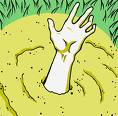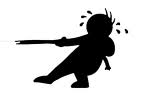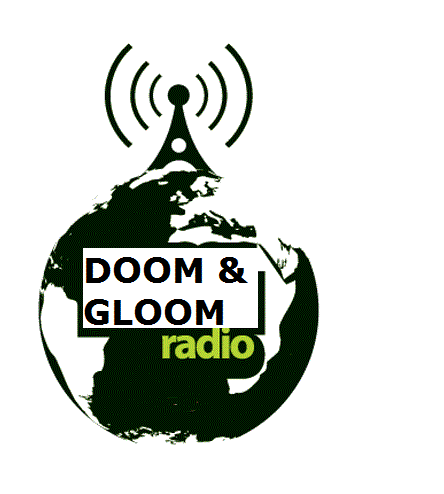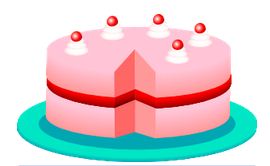Metaphors
Therapy metaphors use a story or illustration to see alternative ways of looking at something. Every culture and religion uses these types of stories, analogies, parables to improve understanding, make a point more memorable, and help us make positive changes.
The example metaphors here are to help us see thoughts – their nature and role - in a different light. Just that alone, seeing thoughts differently, helps to create a space, a distance, between us and our thoughts, which helps us to stand back a little, see things a bit more objectively, and make wiser and more helpful decisions about how to react effectively.
Passengers on the Bus
You can be in the driving seat, whilst all the passengers (thoughts) are being critical, abusive, intrusive, distracting, and shouting directions, or sometimes just plain nonsense. You can allow those passengers to shout and chatter noisily, whilst keeping your attention focused on the road ahead, heading towards your goal or value.
(Hayes et al 1999)
Playground Bully
Our minds are like school playgrounds that are surrounded by secure high fences – they keep children in, and others out. Any bullies in that playground mean that the other children can’t escape for long. This particular bully uses verbal abuse, shouting, teasing, and threats (rather than physical violence). The children are all fenced in together, and ideally, they have just got to learn to accept and learn to be with each other. So neither can we escape our thoughts, we cannot stop them, but perhaps we can learn to live with them by seeing them differently. Along comes bully, and takes on 3 potential ‘victims’ who all react differently.
Victim 1 – believes the bully, distressed, reacts automatically (bully carries on)
Victim 2 – challenges the bully “hey I’m not stupid, I got 8 out of 10 in my spelling test this morning, you only got 4” (bully eventually gives up)
Victim 3 – looks at the bully (acknowledges the thought), then walks away and goes off to play football with his mates (dismisses the thought), then changes their focus of attention.
(Based on Hannan & Tolin 2005)
The River
Sometimes it feels like we’re being carried away downstream, struggling to stay afloat amongst all the mud, filth and debris. That muck and debris are thoughts, sensations, events, feelings, and that river is our distress as we drift helplessly downstream. But we can stand on the riverbank, watching as those thoughts, events, sensations, feelings go by. You might watch individual items as they pass – perhaps a thought floating on a leaf, a sensation as a log, an event as an old bicycle. We can stand and watch.
The Beach Ball
We try to stop thoughts, but that’s impossible. It’s like trying to constantly hold an enormous inflatable beach ball under the water, but it keeps popping up in front of our faces. We can allow the ball to float around us, just letting it be. So rather than stop the thoughts, we can stop fighting them, and let them be, without reacting to them.
(Vivyan 2009)
Thought train
Standing on the station platform, sometimes we are advised to stand back as an express train will be passing through at speed. We hear and feel it approaching, thundering through as it buffets us with a strong blast of wind. We don’t attempt to jump on the express train and let it take us to destinations we don’t want to go to.
We can learn to notice the thoughts and feelings coming, and instead of jumping on that thought train, we can learn to stand on the platform, let it pass, and wait for the right train that will take us to where we want to go.
The Tunnel
When we get anxious driving through a tunnel, the best option is to keep going rather than try to escape. This feeling will pass – there is an end to this tunnel.
The Mountain
Whatever the weather, or whatever happens on the surface of the mountain – the mountain stands firm, strong, grounded, permanent. We can be like that mountain, observing thoughts, feelings, sensations, knowing inner stillness.
The Mind Monsters (Bad Wolf, Good Wolf)
We can think of unhelpful or distressing thoughts as the Mind Monsters. (The Native American Cherokees use a similar example of a "Bad Wolf, Good Wolf"). Being a monster, we can’t do much to stop or fight them – that just seems futile sometimes. When we do fight, it can help for a while, but those monsters may well just keep coming back. Like all monsters though, these Mind Monsters need food. If we can deprive them of food, then they’ll eventually go off seeking sustenance elsewhere. These monsters (or 'Bad Wolf') feed off our reactions – our believing those monsters, reacting to them, being upset by them, and acting accordingly and often automatically and unthinkingly.
We can maintain and make worse our situations just by those reactions. Those vicious cycles of our reactions mean that the monsters just keep coming. If we can stop ‘feeding’ the monsters – they’ll get weaker and weaker and eventually move away. Others will come, but again we can choose not to feed them – by changing the way we think and react, and by paying more attention to the 'Good Wolf' in us.

Google Earth & The Helicopter View
Sometimes it’s useful to see the bigger picture. When something is distressing us, we’re so close to it, involved with it, part of it – it’s really hard to stand back from what’s happening. It’s a bit like Google Earth – we see the close up view but everything else is hidden from us. "We can't see the wood for the trees". We can zoom out our perspective, and see the bigger picture. Some might describe it as like having a Helicopter View – as the helicopter takes off, getting higher and higher, it sees a bigger picture, and is less involved with the detail at ground level.
(Diagram: Vivyan 2009)
Foreground & Background – Monitors & Zoom lenses
When doing presentations using a laptop and projector, there’s an option of what to display on each monitor. The laptop screen is called Monitor 1, and the projector is Monitor 2. The graphic in Control Panel is shown as 2 large screens with large white numbers on them. Click on Monitor 1 and it enlarges and comes into the foreground, whilst Monitor 2 gets smaller and further away. Click on Monitor 2 and it zooms up towards you, getting bigger, whilst Monitor 1 goes away. It can be like that with our attention. Something grabs our attention – a sound, a sight, a feeling, a thought – and we zoom in, putting it the foreground of our attention, making it bigger and more intrusive.
Everything else moves away into the background. We can choose what we put in the foreground – more helpful thoughts, our breath, imagery, a sensation, what we see, what we hear – so that other more unhelpful thoughts or sensations go more misty into the background. Like a zoom lens as it focuses in on something particular, the rest of the picture goes out of focus, loses clarity. We can zoom in and out, shifting our focus of attention.
(Vivyan 2009)
The Plane Crash
Not so long ago, a plane landed seemingly miraculously on the River Hudson.  All 155 people came out alive. What did those 155 people feel as they stood on dry land and realised what they’d been through? Would they all have had the same reaction? Absolutely not! Many would have felt very distressed and upset – they nearly died, and they might decide never to fly again as it’s clearly too dangerous. Others might been overwhelming relief and happiness at having survived. Some might decide to live life to the full as a result of their experience, and be determined to fly even more. There could be 155 different reactions.
All 155 people came out alive. What did those 155 people feel as they stood on dry land and realised what they’d been through? Would they all have had the same reaction? Absolutely not! Many would have felt very distressed and upset – they nearly died, and they might decide never to fly again as it’s clearly too dangerous. Others might been overwhelming relief and happiness at having survived. Some might decide to live life to the full as a result of their experience, and be determined to fly even more. There could be 155 different reactions.
Same event, different responses. It’s not the event which causes our emotions, it’s the meaning we give them. Those who interpreted the event as terrifyingly dangerous may feel very distressed, and be too anxious to fly again. Others will feel ecstatic as the meaning they gave the event was that they were incredibly lucky to survive.
(Ayres 2009)
The Traffic Accident
 When there's a traffic accident, police ask for witnesses to come forward and describe what happened. They like to have as many witness statements as possible so that they can build up enough evidence to give them a broader, more realistic version of events. In a traffic accident, there will be many different perspectives on what happened. The driver of one car will have one view, another driver or a passenger will have yet another view. Each onlooker who witnessed the accident will have a slightly different perspective, depending on where they were, how far they were, how good a view they had, what else was going on, how much danger they felt they were in, how the accident affected them, what the accident means to them.
When there's a traffic accident, police ask for witnesses to come forward and describe what happened. They like to have as many witness statements as possible so that they can build up enough evidence to give them a broader, more realistic version of events. In a traffic accident, there will be many different perspectives on what happened. The driver of one car will have one view, another driver or a passenger will have yet another view. Each onlooker who witnessed the accident will have a slightly different perspective, depending on where they were, how far they were, how good a view they had, what else was going on, how much danger they felt they were in, how the accident affected them, what the accident means to them.
It's the same principle with everything - each situation, event, conversation, means something different to all those involved, and also to those not involved.
(Vivyan 2009)
The Quicksand
Used by Stephen Hayes to introduce clients to Acceptance & Commitment Therapy (ACT).  When we’re stuck in quicksand, the immediate impulse is to struggle and fight to get out. But that’s exactly what you mustn’t do in quicksand – because as you put weight down on one part of your body (your foot), it goes deeper. So the more you struggle, the deeper you sink – and the more you struggle. Very much a no-win situation. With quicksand, there’s only one option for survival. Spread the weight of your body over a large surface area – lay down. It goes against all our instincts to lay down and really be with the quicksand, but that’s exactly what we have to do.
When we’re stuck in quicksand, the immediate impulse is to struggle and fight to get out. But that’s exactly what you mustn’t do in quicksand – because as you put weight down on one part of your body (your foot), it goes deeper. So the more you struggle, the deeper you sink – and the more you struggle. Very much a no-win situation. With quicksand, there’s only one option for survival. Spread the weight of your body over a large surface area – lay down. It goes against all our instincts to lay down and really be with the quicksand, but that’s exactly what we have to do.
So it is with distress. We struggle and fight against it, but we’ve perhaps never considered just letting it be, and being with the distressing thoughts and feelings, but if we did, we’d find that we get through it and survive – more effectively than if we’d fought and struggled.
(Hayes et al 1999)
Imagine you're given a parrot. This parrot is just a parrot - it doesn't have any knowledge, wisdom or insight. It’s bird-brained after all. It recites things ‘parrot fashion’ – without any understanding or comprehension. It’s a parrot.
However, this particular parrot is a poisoned and poisonous parrot.  It's been specifically trained to be unhelpful to you, continuously commenting on you and your life, in a way that constantly puts you down, criticising you. For example, the bus gets stuck in a traffic jam, and you arrive at work 5 minutes late. The parrot sits there saying: "There you go again. Late. You just can’t manage to get there on time can you. So stupid. If you’d left the house and got the earlier bus you’d have arrived with loads of time to spare and the boss would be happy. But you? No way. Just can’t do it. Useless. Waste of space. Absolutely pathetic!"
It's been specifically trained to be unhelpful to you, continuously commenting on you and your life, in a way that constantly puts you down, criticising you. For example, the bus gets stuck in a traffic jam, and you arrive at work 5 minutes late. The parrot sits there saying: "There you go again. Late. You just can’t manage to get there on time can you. So stupid. If you’d left the house and got the earlier bus you’d have arrived with loads of time to spare and the boss would be happy. But you? No way. Just can’t do it. Useless. Waste of space. Absolutely pathetic!"
How long would you put up with this abuse before throwing a towel over the cage, or getting rid of the parrot? We can often put up with the thoughts from this internal bully for far too long.
We can learn to use the antidote: notice that ‘parrot’ – and cover the cage. "There's that parrot again - I don't have to listen to it", and go and do something else. Put your focus of attention elsewhere. Be persistent in your practice! Eventually this poisoned parrot will tire of the towel, tire of you not responding. You'll notice it less and less. It might just give up its poison as your antidote overcomes it, or perhaps fly off to wherever poisoned parrots go.
(Vivyan 2009 - adapted from 'The Malevolent Parrot" Kristina Ivings).
Tug of War with a Monster
 Imagine you’re in a tug of war with some huge anxiety (depression etc) monster. You’ve got one end of the rope, and the monster has the other end. In between you, there’s a huge bottomless pit. You’re pulling backward as hard as you can, but the monster keeps on pulling you ever closer to the pit. What’s the best thing to do in that situation?
Imagine you’re in a tug of war with some huge anxiety (depression etc) monster. You’ve got one end of the rope, and the monster has the other end. In between you, there’s a huge bottomless pit. You’re pulling backward as hard as you can, but the monster keeps on pulling you ever closer to the pit. What’s the best thing to do in that situation?
Pulling harder comes naturally, but the harder you pull, the harder the monster pulls. You’re stuck. What do you need to do?
Dropping the rope means the monster’s still there, but you’re no longer tied up in a struggle with it. Now you can do something more useful.
(Harris 2009)
The Mind Bully Webpage
Struggling Uphill in Top Gear
Sometimes life can feel like we're struggling to drive or cycle up a long and steep hill, in top gear. The motor just can't get us there. It works really hard, but it's impossible to get up that steep hill in top gear. We need to change down a gear or two. Changing down gives the motor more torq, and is much better able to drive those wheels up that hill, albeit a bit slower.
It can be like that with life sometimes. We try to struggle on in top gear, expecting so much of ourselves, of others, of life itself. Sometimes we need to change down a gear. Slow it down, reduce the struggle. Carry on, but in a lower gear.
New Browser Window (PDF)
We can imagine our mind can be compared to an internet browser. Our mind's default mode is like a search engine's function which searches the internet looking for information. New and old. Useful and not useful. Current and out-of-date. Fact and opinion. Once our mind has found something to latch onto, it can be difficult to let it go - as if it is showing and staying in our browser window.
Just as with an internet browser though, we don't have to keep focusing on things we don't want or need to focus on. We can choose to open a new tab or new window, and create a blank page. Our old tabs or windows can still be there, to come back to anytime, if we so choose.
Opening a new tab or window means we clear out the clutter, our thought clutter, and start again. This time, we can choose what to put in this window. What would be helpful? What would be the best thing to focus on? Or maybe we can just let it stay almost blank - observing this present moment. Our breath, our supported body, our environment.
Every time you notice your mind is in the default mode, browsing around and getting caught up in unhelpful or upsetting thought patterns:
- Notice your mind is in default mode
- Think about opening a new browser window
- Choose your focus, e.g. your breathing, the environment, your activity (current or choose a new activity)
The Train Traveller (explaining the rationale for Behavioural Experiments)
A train passenger sits in the corner of a carriage, quietly ripping up paper into small pieces and then throwing them out of the window.
Ticket collector:"Sir, why are you throwing pieces of paper out of the window?"
Passenger: "To keep dragons off the railway line".
Ticket collector: "But there are no dragons on the line sir".
Passenger: "Exactly!"
How is the passenger going to find out that throwing pieces of paper out of the window doesn't keep dragons away because there are no dragons?
Metaphors for the Mind (Act made simple, Harris 2009)
A master storyteller
The world’s greatest storyteller – it never stops! It’s never short of a story to tell, and it wants is for us to listen, whatever the story is. Like any great storyteller, it’ll say whatever it has to say to get our attention. Some stories are true: we can call these facts. Others are opinions, beliefs, ideas, attitudes, assumptions, judgements, predictions etc. Stories about how we see the world, what we want to do, what we think is right or wrong, fair or unfair, good or bad.
 Just listen now, to the story your mind is telling you now.
Just listen now, to the story your mind is telling you now.
Radio “doom and gloom”
Broadcasting a lot of gloom about the past, doom about the future, and dissatisfaction about the present.
A spoiled brat
Making all sorts of demands, and throwing tantrums if it doesn’t get its own way
A reason-giving machine
Churning out a never-ending list of reasons why you can’t or shouldn’t change
A word machine
Manufacturing a never-ending stream of words
A fascist dictator
Constantly ordering you about and telling you what you can and can’t do
A judgement factory
Spending all day long making judgements
The Walk of Life
When we are walking a
If we were constantly looking behind us, then we would be walking into obstacles or tripping over. If we were constantly focused on the far distance, we would slip and trip over obstacles beneath us. (It can be fun to act this out!)
So it is with life. Sometimes we are so focused on our past, that we neglect the present, and wonder why we keep falling flat on our faces. Or perhaps we are so attentive to anticipating dangers up ahead, that again, we trip and stumble our way through life.
(Carol Vivyan 2012)
The Roller-Coaster
Useful to help explain the basic concept of CBT to children: Same situation, but different emotional and behavioural responses.
Two children went to a fair-ground and Tom ran to queue up for the roller-coaster, jumping around and smiling. Noah walked much more slowly and reluctantly to queue, looking at the ground.
Discuss possible emotions that Tom and Noah might be feeling. Is the roller-coaster making them feel this way? Is it possible that there is something else that accounts for the way they feel?
(TA Creed)
Life is like a Cake
Many people have described life as being like a cake. Many ingredients can go into a cake, but the finished cake is down to what we do with those ingredients. We all have different life situations, but we can choose what we do with those ingredients. Some people have many fantastic ingredients, but the cake is a flop. Others have few ingredients, or less desirable ingredients, but are great cooks and make wonderful cakes.
The Newspaper Headline
Most national (and perhaps local) newspapers have a particular bias, particularly a political bias. If we read a different newspaper to our usual one, it helps to know that paper's bias, as it gives us an idea about whether we should trust and believe everything this paper says.
Most newspapers create sensational headlines, to catch our attention. Just as our minds do. Do we believe everything the newspaper says? Do we believe everything our mind says?
The Weather

Our thoughts and feelings are like the weather, they come and they go. We cannot control or stop them, but we can learn to react to them differently. If we give up the futile struggle to try and stop or control it, the storm of thoughts and feelings will pass.
Online Shopping
When we visit an online store, we tend to know what we are looking for. We know our 
However, we do tend to buy into each thought in our mind’s online shop front, especially those thoughts that fit with the thinking habits we’ve got into. If only we could treat them the same way as the online store! Do I need to buy this thought, right now? Can I afford it? Is it going to be helpful? Is it really true?
Reset Button
When we feel emotional, we can feel overwhelmed and our thinking brain (the pre-frontal cortex) goes offline – just like our computer does sometimes when it tries to do too many processes at once. To get our computers working again, we can either wait, or we can reset it.
We can use our mind’s reset mechanism by telling ourselves to STOPP and breathe – a little slower, in through the nose, out through the mouth. In thinking about our breathing, we have shifted our focus of attention and the emotional thoughts fade a little into the background. In taking slower deeper breaths, we are calming our physical sensations of emotion. This reduces the emotion enough to allow our thinking brain to come back online, enabling us to make more rational responses.
Save or download this page as PDF
Other Therapy Metaphors
The Visitor - Mindfulness ExerciseThe Helicopter View
The Super Scanner (Health Anxiety) PDF
The Super Scanner (generic)
The Mind Bully WebpageThe Mind Bully PDF
Books
Oxford Guide to Metaphors in CBT: Building Cognitive Bridges
Useful links





















